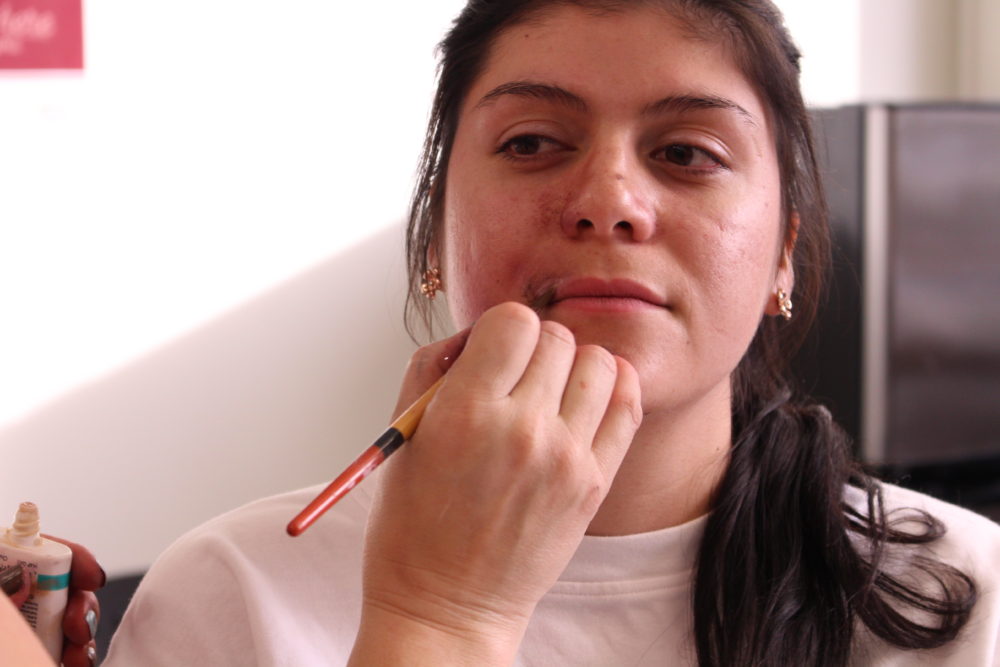Lethbridge College and NAIT students came in clutch at a time of crisis at the annual mock disaster.
Nursing, EMT, Policing and Digital Communications and Media students were given the opportunity to respond within their chosen career paths to a real life scenario they may actually encounter within the future.
This year’s events detailed a party gone wrong with overdoses, stabbing and victims of a hit and run.
Mel Hamilton, an event coordinator, says this is an opportunity to provide an example of interdisciplinary relations.

Hamilton consoles a patient as part of the Mock Disaster.
“The nurses are always going to be in the hospital but we have to keep in mind that the Criminal Justice students or the EMT students would be heavily involved in the scenario,” Hamilton said.
She also said that it’s important to remember the information would then need to be communicated to the public through digital media platforms.
“What it does is it allows students to understand the rules, responsibilities and boundaries they are in when they treat this situation,” she replied, “and because our actors are live, there is some more unpredictability in these scenarios.”
Steven Burles, a graduated Criminal Justice student and volunteer agrees with Hamilton, saying the active learning is extremely helpful to not only understand how departments work together but also how to safely react to difficult situations.
“There is no medicine in a gun fight,” he said, “Your job is to keep yourself safe first, so keep moving.”
Hamilton says that though the injuries are fictitious, the reactions and responses to different stimuli are all things one might see if the disaster was real.
“It gets students to think critically and on their feet which you can’t contrive in a classroom setting.”
Burles played a stabbing victim with lacerations on both of his hands and a collapsed lung.

“Days ahead I’ll research everything to make sure I get the sounds right and that kind of stuff so I know how my behaviour should be,” he explained.
Paige Pfefferle, an EMT student from NAIT says it’s helpful to work heavy conditions with realistic patients.
“It’s always about organization – not only organizing your own thoughts but also organizing with your other workers,” she said.
One of the things she said was most important about this learning process is team work.
“Keeping a good track run with other students is hard. When people start doing other stuff and I get confused, I need refocus to keep my train of thought.”
The experience offered other types of educational value as well.
Conditions in disaster-type situations are often difficult for the people responding to the situation. This year, the organizers called in Harmoni Jones from Health Services to open dialogue about compassion fatigue and burn out.
Jones discussed the services offered within the different disciplines for mental health and how scenarios with multiple causalities grate on people’s well-being.
“Sometimes when you’re constantly thrown into this, that can be really draining,” she explained. “You may think ‘I don’t want to feel anything’ and you show up feeling like a robot.”
She also said that others have the polar opposite reaction, becoming more sensitive to stressful encounters.
“People often take care of their physical well-being but not their mental one,” Jones continued. “It’s important to know that you need to take care of both.”
The first hand training offered has spurred on the Scholarship of Teaching and Learning which is research for the best outcome for curriculums.
They take the experiences accumulated throughout their programs and publish their findings with the intent of helping other schools accomplish hands on education.

